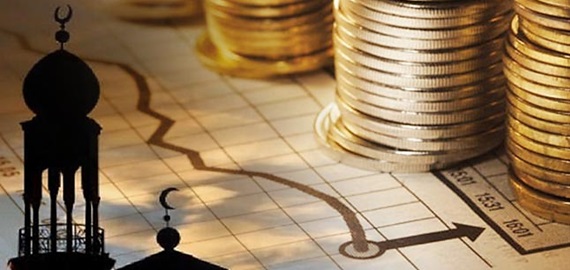Uganda’s banking industry performance weakened during the 2011-2014 period due to turbulent economic challenges, and now, traders are protesting against high-interest rates.
If both economic growth and lending growth, especially in the private sector, are low, there is no way the government will be able to solve unemployment because the general public will fear seeking loans due to the high interest rates – and the banks will be stuck with the money as there will be no investments coming up – hence leading to the closing down of businesses, which leads to low consumption and purchasing power, static or declining economic growth, high taxes, high prices, demonstrations, strikes, murder, theft, corruption, etc.
It’s high time banks diversified their portfolio and embraced Islamic banking, reducing their risk exposure to sensitive sectors like oil and gas since the world is moving towards reIt’s no longer in the interest of major oil-producing countries to restrain output as they seek to produce and export as much as they can because, in the near future, we see factors like climate change, new electric car technologies, clean hydrogen energy, solar and wind energy, and shale going to erode long-term demand for crude oil in the next decade as technology makes fossil fuels obsolete.
Saudi Arabia has come up with an ambitious yet achievable plan called Saudi Vision 2030, introducing a futuristic $500 billion NEOM development project among them called “The Line,” showing how urban cities can look in the future with zero carbon emissions, which means no cars or roads.
The aim is to reduce Saudi Arabia’s dependence on oil, diversify its economy, and develop public services such as education, infrastructure, health, tourism, communication, science, and technology. It’s high time Uganda too increases local production in agriculture through Islamic banking agriculture business loan products that are suitable for farmers’ needs, increases production in manufacturing, building materials, animal production, pharmaceuticals, tourism, communication, science, and technology, and also reduces costs on goods imported and encourages more exports.
As of 2018, the US surpassed Russia and Saudi Arabia as the world’s top crude oil producers. This means that if the US or Russia increases production and there is a low demand for oil in China and Europe, combined with a steady supply of oil from OPEC, or if China automatically buys oil from Iran, there will be an excess supply of oil and oil prices will fall due to supply and demand laws.
As a result, non-OPEC countries will be discouraged from producing due to production hurdles and costs; for example, it is cheaper to extract oil in the Middle East than in Alberta, Canada; oil price volatility; sometimes high-interest rates impact oil prices; older wells that are less productive; and others experiencing high costs for new projects coupled with increased demand for oil in home countries due to increased demand for oil.
As we continue seeing Islamic finance as one of the fastest-growing segments of financial opportunity in the world today, growth in the Islamic banking sector largely outpaces that of conventional banks in most systems in which Islamic banks have been embraced due to proactive governments, high demand for Shariah-compliant products, and strong retail demand, which provides greater stability for their funding profiles and legislation for the industry, and this positions Africa as the third fastest-growing region after the Middle East and Asia.
According to Muhammad Zubair Mughal, chief executive officer of AlHuda Centre of Islamic Banking and Economics (CIBE), the total volume of Islamic finance is expected to hit more than $3.8 trillion this year, and global Islamic finance assets are projected to be nearly $5 trillion by 2025, proving that Islamic banking is no longer an alien in the global financial industry.
With this in mind, the majority of non-Muslim countries, including Uganda are working tirelessly to become the financial hub in their respective regions by introducing Shariah-compliant financial products into their markets to meet the demands of the Muslim population of 1.97 billion adherents, accounting for more than 25 per cent of the world’s population and the second-fastest growing religion, growing faster than the world’s population projected by the Pew Research Center.
In Uganda, a few authorities such as the Central Bank, Uganda Microfinance Support Centre, Insurance Regulatory Authority, Uganda Muslim Supreme Council, Uganda Insurers Association, Insurance Training College of Uganda, and other institutions and centres are helping in promoting and developing Islamic finance.
Uganda should take advantage of Islamic finance because it’s already proven to be a strategic instrument to tap into the unbanked population and address the important issue of financial inclusion, as well as a catalyst for boosting foreign direct investment (FDI) and trade flows among Africa, East Asia, the Middle East, the OIC, and international markets. By offering low-income people digitalized banking services, they will be able to increase penetration.
Uganda can attract billions of dollars, including Shariah-compliant funds, to finance government-backed projects such as railways, oil pipelines, refineries, roads, domestic manufacturing, industrial parks like Namanve and others, vocational institutions, tourism, dams, mining, innovative agriculture, airport expansion, and interest-free loans (Qard Hassan). Uganda has poor infrastructure, so there is a substantial need for project financing. Sukuk (Islamic bonds) have emerged as a viable and strong source of attracting international funding for both commercial and development projects, and they could easily diversify funding sources, ensure better monitoring of fund deployment, and contribute to the country’s private sector development.
Having that in mind, Islamic banking is not only for Muslims; it’s for all, and all the financial products that will be on the market will be for all Ugandans, both Muslims and non-Muslims, which is vital for sustained growth of the industry in the future.—AllAfrica.com










